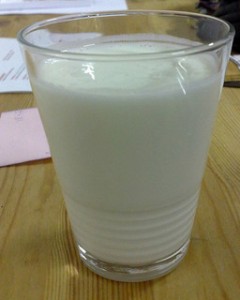Probiotics Help You Lose Weight
Losing weight may not just be a matter of what we put into our guts. It seems that what is already in our guts in the form of probiotics also has a lot to do with weight loss and gain.
In this article
Clinical study on probiotics and weight loss
Japanese researchers have determined, in a large multi-center, double-blind randomized controlled study that consistently consuming a minimal dosage of a particular strain of probiotics results in reduced abdominal fat and lower body mass index in three months.
The researchers, from Japan’s Milk Science Research Institute in Minamidai, tested 210 Japanese adults who were obese, with significant abdominal fat – big bellies, in other words. The study was published in the British Journal of Nutrition.
They divided the adults into three groups, and gave each group 200 grams of fermented milk per day – containing up to 107 CFUs per gram/milk of the probiotic species and strain Lactobacillus gasseri SBT2055 – also dubbed LG2055. The control subjects were given milk containing no probiotic content, and another group was given a lesser CFU amount per day (106 CFU per gram of milk).
After twelve weeks of treatment, the subjects were all tested for body mass index and abdominal fat, using computed tomography. They were also measured for waist and hip circumference, and total body fat mass – comparing these with the beginning of the study and then compared with the differences among the three study groups.
Abdominal fat loss
The researchers found that after just three months of consuming the probiotic milk both probiotic groups experienced a significant drop in abdominal fat, by 8.5% in the 107 CFU/gram group and 8.2% for the 106 CFU/gram group.
The probiotic groups also measured out with significantly decreased body mass index (BMI) levels and decreased hip and waist circumference as compared to the the beginning of the study.
The control group showed no such abdominal fat loss or changes in BMI or hip and waist circumference.
Furthermore, the researchers also followed some of the probiotic subjects through another four weeks after they stopped the probiotic regimen. They found that just four weeks off the program resulted in a reversal of most of the fat and weight loss among the probiotic groups.
The researchers concluded:
“These findings demonstrate that consumption of LG2055 at doses as low as the order of 108cfu/d exhibited a significant lowering effect on abdominal adiposity, and suggest that constant consumption might be needed to maintain the effect.”
This of course illustrates an ongoing metabolic change that occurs with regular probiotic consumption.
Other studies confirm weight loss and probiotics
In another study, researchers established that supplementing with 108 CFU/grams provided even more weight loss. This study illustrated that the weight loss is to some degree dosage dependent.
Other studies have established weight loss effects among mice and humans with regular probiotic consumption and prebiotic-rich foods.
The mechanisms of this effect are still not clearly understood, but most clinicians agree that the probiotics must be extracting some of the calories before they have a chance to collect as fat within adipose cells.
This is also why fiber helps you lose weight. Because fiber is prebiotic.
REFERENCES:
Kadooka Y, Sato M, Ogawa A, Miyoshi M, Uenishi H, Ogawa H, Ikuyama K, Kagoshima M, Tsuchida T. Effect of Lactobacillus gasseri on abdominal adiposity in adults in a randomised controlled trial. Br J Nutr. 2013 Apr 25:1-8.
Million M, Lagier JC, Yahav D, Paul M. Gut bacterial microbiota and obesity. Clin Mcrobiol Infect. 2013 Apr;19(4):305-13.
Kadooka Y, Sato M, Imaizumi K, Ogawa A, Ikuyama K, Akai Y, Okano M, Kagoshima M, Tsuchida T. Regulation of abdominal adiposity by probiotics (Lactobacillus gasseri SBT2055) in adults with obese tendencies in a randomized controlled trial. Eur J Clin Nutr. 2010 Jun;64(6):636-43.















